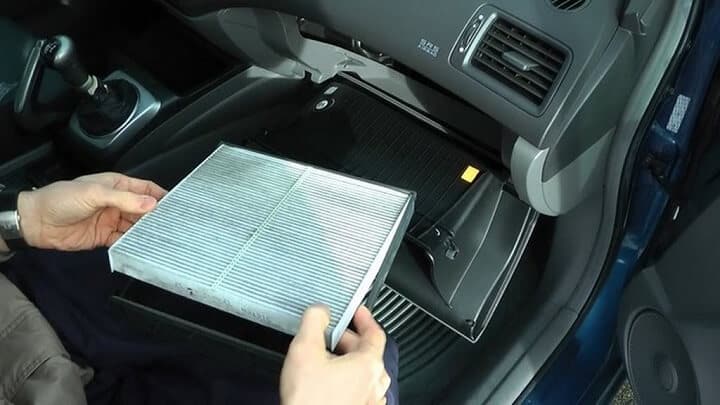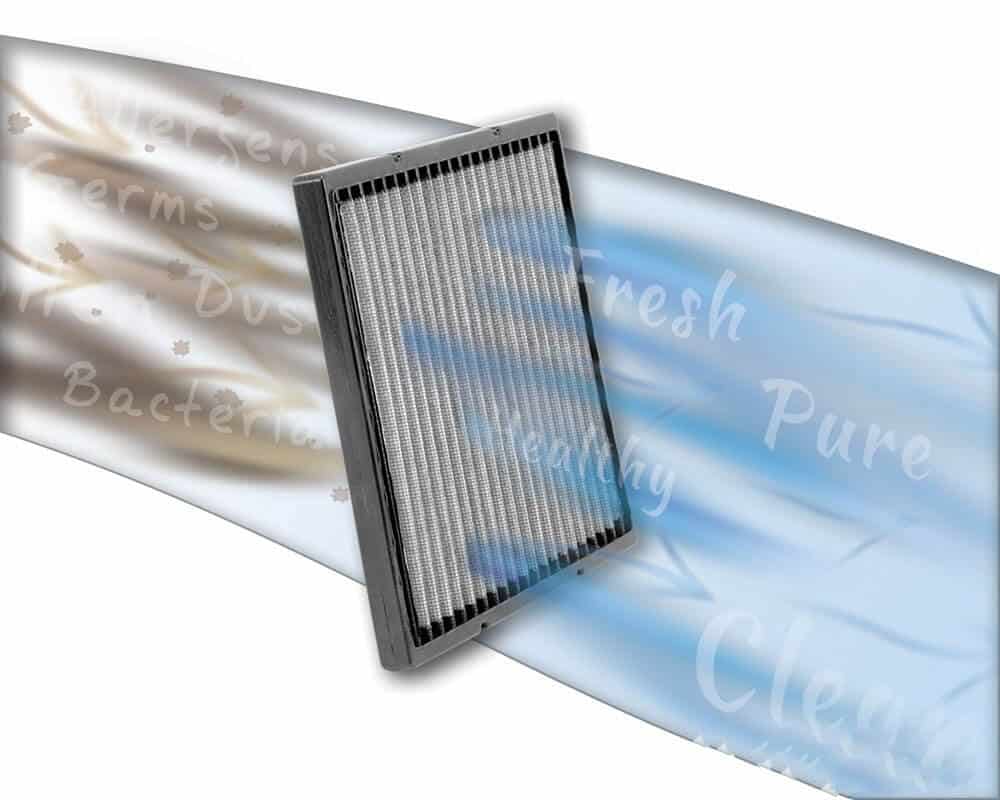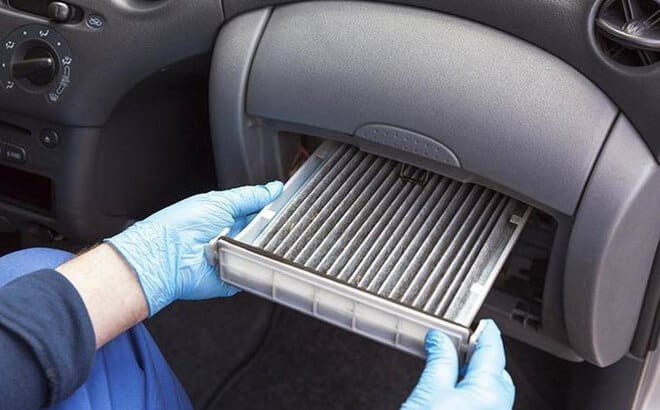Nowadays, many people do not seem to care about the presence of air filter in the cabin because they do not know its importance for cars. Therefore, many drivers do not change the air filter regularly because they think that it is okay not to change the air filter. This is indeed a wrong thought! And Thanh phong Learn the importance and how to maintain air filter effectively in the cabin.
Cabin air filters play an important role in removing pollutants, dirt or other entities from entering the cabin.

The air filter is placed in front of the air conditioning system, it has the main function of filtering the air and purifying it before going into the cabin. The air will contain various toxic elements such as pollen, dust, smoke, and mold when passing through the HVAC system. Therefore, in order to get a cleaner, non-toxic air in the car, this filter is required to remove all of the above factors.
Learn The Damage And How To Repair A Car Air Conditioning System
Besides, the air filter can filter out and remove all other harmful elements such as mouse droppings, crop fragments or even leaves. This not only helps the air conditioning system is not clogged and operate more efficiently, but also helps ensure the health of the driver as well as those present on the vehicle.

For most cars manufactured after 2000, the air filter will be placed in places such as:
Basically every car has only one air filter in the cabin. However, there are exceptions for some of the more expensive, more expensive cars that may have two or more air filters.
There are many cases where drivers use cars and have moved more than 90.000 km but still refuse to replace the new air filter. This not only affects the health of car users but also damages the air-conditioning system of the "beloved driver".
Therefore, to be more sure of the time to replace the air filter, it is best to check the user manual. If not, when your vehicle is about 25.000 km to 45.000 km, you can proceed to replace this air filter.

As your car travels through the city, all the pollution may make your air filter worse. If your "driver" has to move around this area much, you need to pay attention to replace the air filter earlier than the prescribed time, or maybe it should be replaced regularly every year. This applies not only to the area of the graph, but also to any area with air quality worse than allowed.
Also, is there any way to know if it is time to replace the air filter in the cabin? Do not worry, just through a few warning signs as follows, you know it's time for your "driver" to refurbish the new air filter:
However, you also need to regularly check the air filter in the cabin once a year if your "driver" does not appear the phenomenon as we mentioned above.
Above is the content about the time to change the air filter in the best periodic cabin that Thanh Phong Auto wants to share to you. Hopefully, with the above information, you will pay more attention and pay more attention to the air filter of your driver. Thank you for following the article.
See More Great Articles At Sharing translation experiences Of Thanh Phong:
Causes & Corrections When The Engine Has A Reverse Explosion
Instructions on how to Replace Spare Tires in the event of a problem
Car Spark Plugs: How to Check & Maintenance
Cars Care Service Price Sheet At Thanh Phong Auto HCMC VietNam:
* The cars that we have mechanics: Mercedes, BMW, Audi, Lexus, Toyota, Honda, Mazda, Mitsubishi, Kia, Daewoo, Hyundai,Ford, Nissan, Volkswagen, Porsche, Chevrolet, Rand Rover, Innova, Fortuner, Vios, Fiat, Bugatti, Ferrari, Bentley, Hummer , Chrysler, Dodge, Renault, Cadillac, Volvo, Subaru, Daihatsu, Ssangyong, Roll-Royce, Peugeot, Smart Fortwo, Tobe M'car, Luxgen, Zotye, Haima, Geely, Baic, Hongqi, Cmc, Mini Cooper, Buick, Opel, Acura, Aston Martin, Vinfast, TQ Wuling.
To keep your vehicle running properly at all times, we offer a number of services that are carried out by our certified, expert auto service and repair technicians who have years of experience performing everything from oil changes to a complete engine overhaul.
LEAVE COMMENT